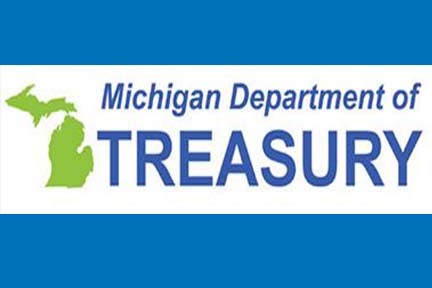
Help Neighbors by Becoming a Free Tax Preparation Volunteer
FOR IMMEDIATE RELEASE Contact: Ron Leix, Treasury, 517-335-2167 Gov. Gretchen Whitmer Encourages Michiganders to Help Their Neighbors by Becoming a Free Tax Preparation VolunteerGet trained to serve your community through your local Volunteer Income Tax Assistance program LANSING, Mich. – Today, Governor Gretchen Whitmer announced a unique opportunity for Michigan residents to contribute to their communities during the upcoming 2025 tax filing season: participation in the Volunteer Income Tax Assistance (VITA) program. The VITA program provides free tax preparation services to low- to moderate-income individuals, persons with disabilities, senior citizens, and limited English-speaking taxpayers who need assistance with preparing their tax returns. “More Michiganders than ever are getting tax cuts and returns thanks to our work to lower costs for seniors and working families,” said Governor Whitmer. “We rolled back the retirement tax, saving 500,000 households more than $1,000 a year, and quintupled the Working Families Tax Credit, delivering $3,150 refunds to over 700,000 working families. I encourage Michiganders to volunteer with VITA programs to help hardworking Michiganders access the tax refunds they deserve. We’ll keep working hard to put money back in Michiganders’ pockets, where it belongs.” During the 2024 filing season, VITA programs collectively saved Michigan residents approximately $16.7 million in tax preparation fees and provided $58 million back into the pockets of Michiganders, according to a Community Economic Development Association (CEDAM) analysis of Internal Revenue Service data. “Becoming a voluntary income tax preparer can make a difference in your community,” State Treasurer Rachael Eubanks said. “Helping individuals prepare and file their tax returns opens the door to tax credits and other benefits that would otherwise be left behind. VITA is a high-impact program that is very meaningful and rewarding. It’s Michiganders helping their fellow neighbors. Please consider becoming a volunteer today.” VITA volunteers are community members trained to help their neighbors file their taxes for free and claim every tax credit available to them. Their service directly aids individuals and families in securing financial stability, weathering unexpected financial challenges, and enhancing overall economic well-being. “Anyone can give back to their community as a free tax prep volunteer,” said Madeleine March-Meenagh, director of economic inclusion at the CEDAM of Michigan. “No prior tax experience is necessary. Free training and IRS certification are just two of the many benefits of volunteering with VITA.” Given that no tax experience is required, volunteers assisting with the VITA program come from all walks of life: working professionals, retirees, college and high school students, IRS employees, and people who simply want to contribute to their community. Volunteers participating in the VITA program are paired with a sponsoring organization. They receive comprehensive training before embarking on their volunteer journey at a convenient location in their community. Training options include both online and in-person formats. Tax assistance sites typically operate during evenings and weekends, accommodating the volunteers’ varying schedules. Interested individuals can sign up now through the IRS. “My wife and I have volunteered with VITA through the Accounting Aid Society for at least 35 years,” said Peter M., a volunteer tax preparer serving southeastern Michigan. “Every year, I feel fulfilled and empowered by helping people with this particularly difficult part of their lives. We have also met many wonderful personalities…I believe that my life has been enriched by the experience!” For more than 50 years, the VITA program has offered free basic tax return preparation to qualified individuals. Although the IRS manages these programs, sites are operated by volunteers who want to make a difference in their communities. In addition to the VITA program, the AARP Foundation administers the Tax-Aide program to help older taxpayers with low to moderate incomes receive tax preparation assistance. Volunteers are encouraged sign up for the Tax-Aide program on the AARP Foundation website. Learn more Volunteer Information https://www.irs.gov/ Taxpayer Assistance Information |




 Secretary Benson spoke in Detroit ahead of the 2024 General Election to announce a new tool that will make election data more accessible to the public.
Secretary Benson spoke in Detroit ahead of the 2024 General Election to announce a new tool that will make election data more accessible to the public. Secretary Benson spoke at a news conference in Detroit to announce the Michigan Voting Dashboard, an interactive tool that will display daily election data.
Secretary Benson spoke at a news conference in Detroit to announce the Michigan Voting Dashboard, an interactive tool that will display daily election data. Secretary Benson smiled for a photo alongside students from UMSI, Scott Tenbrink, an instructor at UMSI; Canton Township Clerk Michael Siegrist, and Whitney Quesenbery, director of the Center for Civic Design (right).
Secretary Benson smiled for a photo alongside students from UMSI, Scott Tenbrink, an instructor at UMSI; Canton Township Clerk Michael Siegrist, and Whitney Quesenbery, director of the Center for Civic Design (right). Secretary Benson stood alongside (pictured from left to right) Siegrist, UMSI student Jackson Gelbard, Tenbrink, Quesenbery, and Secretary Benson.
Secretary Benson stood alongside (pictured from left to right) Siegrist, UMSI student Jackson Gelbard, Tenbrink, Quesenbery, and Secretary Benson.



